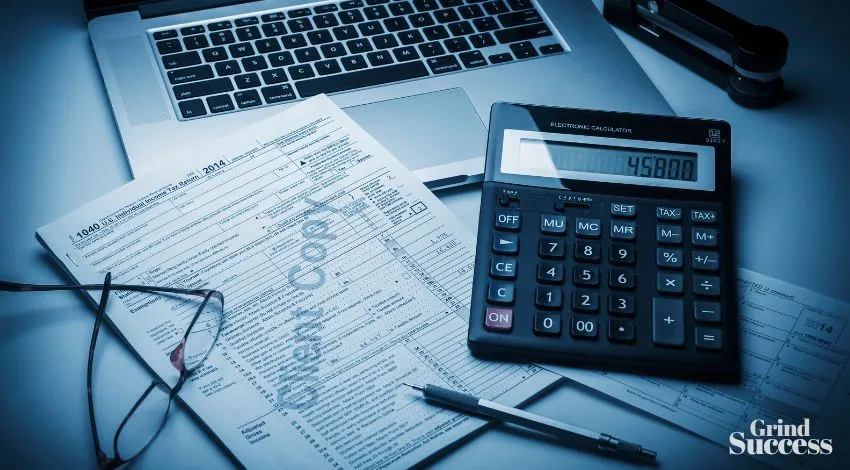ASC Topic 842 And Your Business: How To Cope With Lease Accounting

Any kind of accounting can be difficult for a business to adapt to. Especially if you’re new to it.
Here, we’ll look at how you, as a business owner can properly find time to deal with accounting burdens as well as looking at how businesses deal with lease accounting, one of the trickier elements of accounting.
We’ll also touch on ASC topic 842, the newest lease accounting standard, and how it might change how you bring together your accounts and balance sheet.
Remember, the majority of businesses in the USA use some kind of lease to help them bring in revenue. Leasing as an industry has grown exponentially according to the United States Census Bureau. The likelihood is that ASC topic 842 will apply to you in some way, shape, or form.
What is ASC Topic 842
Let’s start with ASC topic 842. ASC 842 is the newest guideline that governs how businesses account for their lease arrangements.
It was set down by the FASB and in short, ASC topic 842 compels businesses reporting under US GAAP to record most of their lease arrangements to their balance sheet. Previously, a lot of leases could be counted as off-balance sheet activity.
So, now we know what it is, let’s look at how you can cope with the extra lease accounting burden as well as other elements of topic 842.
When Did ASC Topic 842 Go Live
The date regarding when businesses actually had to start conforming to ASC 842 is the same for private and nonprofit organizations. The actual date was December 15th, 2021, meaning the year 2022 end was the first accounting period including ASC 842 and the one after fully encapsulating the change.
If you’re not sure about whether or not you’re following 842, now is the time to check up on it with your accountant.
If you’ve missed the date and haven’t yet adopted the new standard don’t panic, but adopt it as soon as you possibly can.
Why Are Leases Important To A Business
If you’re new to leases and thinking that having to account for leases might put you off, it’s important to realize how important leases are to business.
Leases are useful to businesses in several ways:
Leases can be long-term purchases or just rentals, depending on whether you go for a finance/capital/operating lease.
How Your Business Can Cope With The Extra Lease Accounting Demand
The one thing this does is increase the burden on you and your business. There are things you can do to make things easier though. What you choose depends on the nature of your business.
For a start, you can hire an accountant to look over your lease agreements and check whether things look right or not. First, you need to make sure they’re pulled into the correct method of accounting. Afterward, you can create a methodology going forward so that it doesn’t happen again.
Second, you can look into lease accounting software to help you out. The right lease accounting software can help you stay compliant going forward in line with ASC 842, your accounting might even be using software to get things right.
How To Find The Right Accounting Software
There’s a lot of accounting software out there for you to choose from so it can be hard getting the right stuff for your business. Finding the right accounting software requires considering several factors.
Start by determining the size of your business, the type of financial transactions you perform, and the specific accounting needs you have. Consider your budget and the cost of the software.
Look at the features offered, such as invoicing, budgeting, payroll, and tax preparation. Make sure the software integrates with your existing systems, such as your bank and other software applications.
Finally, read reviews from other users and consider the level of customer support offered by the vendor. It’s important to find software that meets your needs, is user-friendly, and has a strong reputation for reliability and security.
Remember, lease accounting software can help with lease accounting, but you need to be sure you don’t over-purchase software…which means buying more than you actually need.
How You Can Keep Up With Accounting Updates In General
A business can keep up with accounting updates by staying informed, utilizing technology, seeking professional advice, and staying organized. Regularly reading industry news and attending conferences and webinars can help a business stay informed about the latest developments in accounting.
Utilizing accounting software that regularly updates and taking advantage of online resources such as tutorials and support forums can also be helpful. Consulting with a professional accountant can provide expert advice on the latest changes and regulations.
Finally, establishing a system for tracking updates and changes can ensure that a business efficiently implements any necessary modifications to its accounting processes. By following these steps, a business can stay on top of accounting updates and ensure compliance with regulations and best practices.
To Conclude
To conclude, it can be pretty hard to set up accounting processes that accurately comply with lease accounting guidelines but once you’re up and running it should be pretty seamless going forward.
Remember, ASC topic 842 is new but it isn’t too onerous, you just need to get familiar with it along with your new look balance sheet and you’ll be fine.
